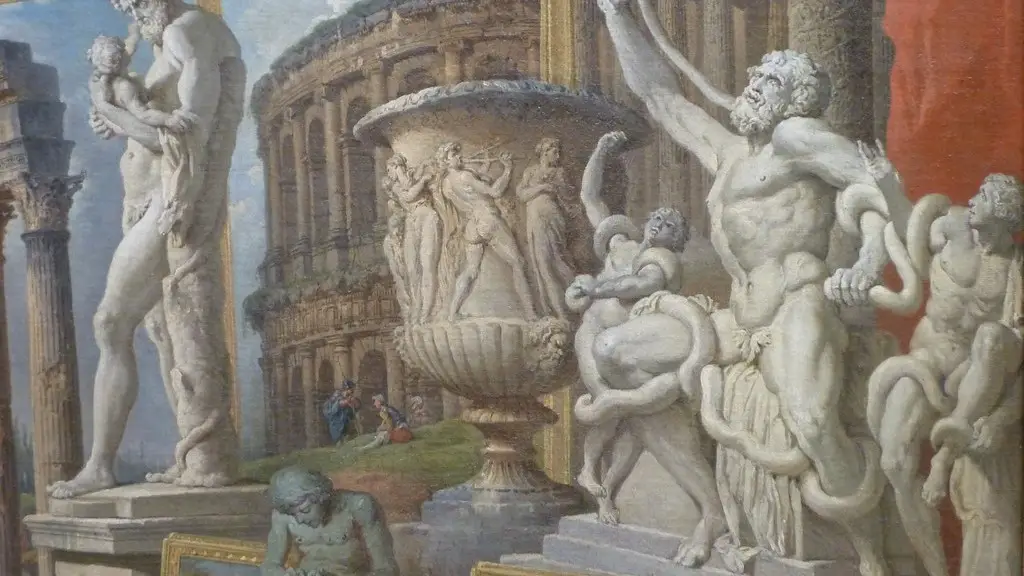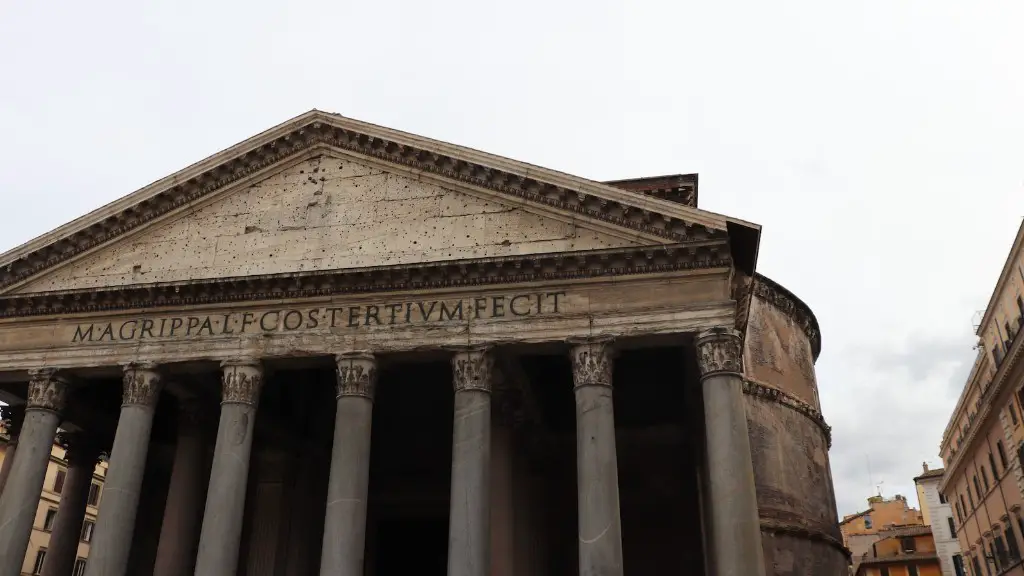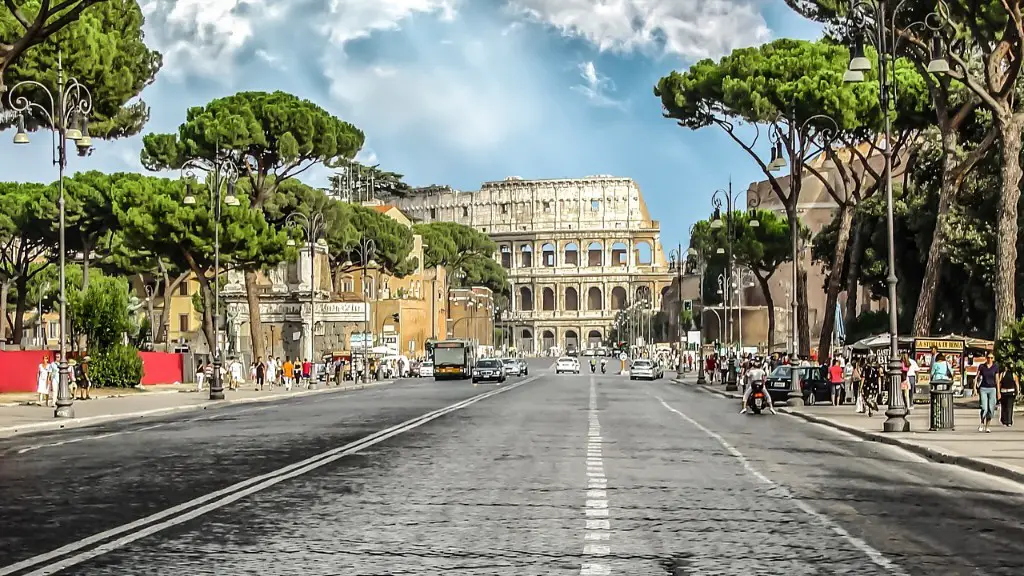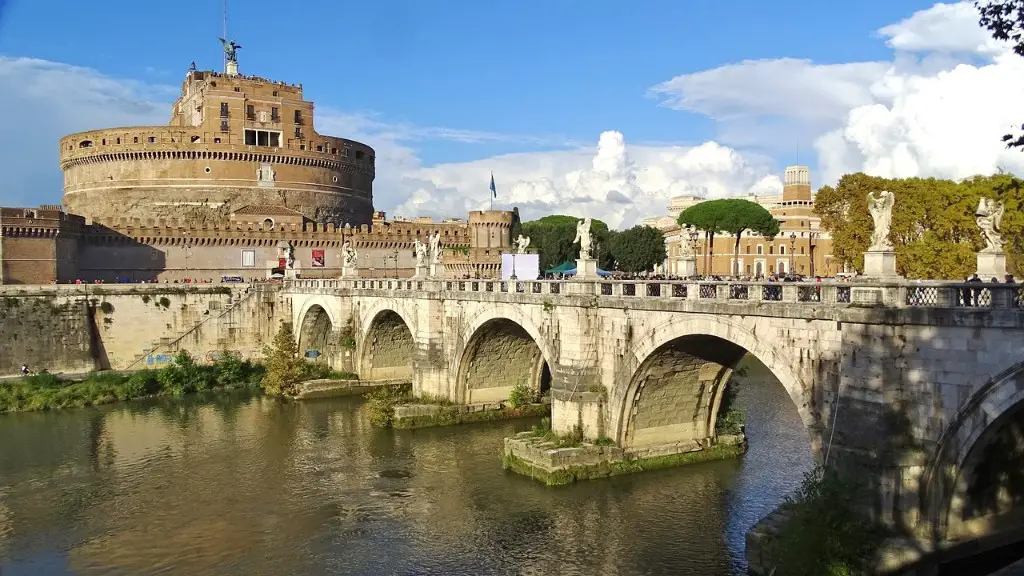Throughout Rome’s history, the senate played a crucial role in the governance of the Republic and its successors like the Roman Empire. It was the assembly of leading state officials, who had the right to make decisions in the name of the state. They often served as advisers to the ruling emperor or consul, and were the most powerful branch of government. As a result, their positions were highly sought after. In this article, we will explore the role of the senator in ancient Rome and what it entailed.
When Rome was a Republic, senators, who were usually from wealthy noble families, were elected to serve in the senate. They served three-year terms and could be re-elected. Senators were entitled to privileges that other citizens did not have, such as the right to sit in the front row of the theater, ride in chariots, and wear purple-striped togas. Senators also had the right to vote on legislation and propose laws, which could then be passed or vetoed by the consul.
Senators were expected to uphold the laws of the state, but they had a great degree of autonomy when it came to deciding on policies. It was their responsibility to debate and pass legislative proposals, appoint judges, and handle foreign affairs. Senators were expected to be knowledgeable about the workings of the state, knowledgeable about foreign affairs, and well-versed in political rhetoric. As such, a senator had to possess great knowledge, experience and diplomacy in order to adequately serve in the senate.
An important function of the senate was the selection and promotion of generals. This was an incredibly important task, as it was the generals who were leading the legions of Rome into battle. The opinion of the Senate was very important when a new general was chosen for a particular mission, and senators often served as military commanders themselves. Senators also had the right to veto important decisions, such as declaring war or signing a peace treaty. This was seen as a way to keep the Roman state from making overly hasty or foolish decisions.
The senate also had the power to create, oversee and collect taxes. This was seen as an important part of the Senate’s responsibility, as collecting taxes was the primary source of revenue for the Roman state. Taxes were seen as an important factor in the growth and prosperity of the state, and senators took this duty very seriously.
In order to make sure that senators were held accountable for their actions, a censure system was implemented in which certain offenses could lead to expulsion from the Senate. This was meant to keep senators from abusing their power and indulging in bribery and corruption.
Senators could also be appointed to other offices, such as a magistrate. Magistracies were seen as important civic roles that could be filled by a trusted senator. Magistrates were usually responsible for administering justice, organizing public games, and overseeing social events. This was an important function of the Senate, as it ensured the continued stability of the state.
Political Influence
The senate played a major role in the politics of Rome as well. Senators were expected to take part in political debates and form alliances with other senators. Senators often formed factions that held dissenting views or wanted to pursue different policies. This could be seen as a way of maintaining balance within the republic, as it allowed different viewpoints to be heard and represented. Senators also had the power to call for the impeachment of a consul if they believed the consul was acting unlawfully. This could be seen as a way to maintain order in the state.
Senators were also influential in the foreign policy of the state. Roman foreign policy was largely shaped by the Senate, and senators frequently made diplomatic visits to other empires. Rome’s foreign policy was seen as a way of keeping peace and stability in the world, and senators often played a major role in influencing how other empires perceived Rome.
Overall, the role of a senator in ancient Rome was immensely powerful. Senators held a great deal of authority and were expected to uphold the laws of the state. They had the power to make decisions that would shape the future of Rome and its allies. Through their knowledge and experience, senators were able to create laws, form alliances, and shape diplomatic relations.
Economic Influence
The Roman Senate also had a large degree of economic influence in the ancient world. They had the power to control trade, levy taxes, and collect revenue. This enabled the state to fund infrastructure projects and other initiatives that enabled the growth of the Roman Empire. The Senate had the power to make decisions related to the economy and could shape the economic policies of the state. This was seen as an important factor in Rome’s growth and prosperity.
The Senate had the power to control the money supply in the Roman economy. They had the power to set limits on the amount of money that could be printed and influence the exchange rates of coins and currencies. These decisions could have a significant effect on the economy and could be used to drive up prices or strengthen the value of the Roman currency.
Senators also had the power to create new taxes and adjust existing taxes. This was seen as a way of ensuring that the state was able to collect money for important projects and initiatives. Senators could also create exemptions for certain groups of citizens or businesses, which could be beneficial for those who were exempt from taxes.
The Senate also had the authority to override financial decisions made by the consul. This was seen as a way to ensure that the consul was held accountable for their decisions and that the Senate had the final say in fiscal matters. This could help keep the state stable by making sure that the consul was not making decisions that could harm the state.
Citizenship
In addition to their powerful political and economic roles, senators had an important role in the civic life of Rome. Senators were regarded as citizens of the highest rank, and their opinions carried a great deal of weight in the public sphere. They were expected to obey the laws of the state and serve as role models for the citizens of Rome.
Senators were also allowed to hold special positions of trust in the state. Estates and other properties often came under their control, as they were considered reliable custodians of the state’s assets. They were also expected to represent Rome in diplomatic negotiations, which was an important job given their authority and influence.
Senators were also the teachers and mentors of the young people of Rome. They were expected to educate young people about the laws and values of the state. They were also responsible for setting a good example for the citizens of Rome, by adhering to the laws of the state and respecting the rights of other citizens.
Overall, the role of a senator in ancient Rome was immensely powerful and influential. Senators held a great deal of authority and their opinions were highly sought after. They were the lawmakers and decision makers of the state, and they wielded considerable power when it came to making decisions that would shape the future of Rome.
Rituals and Ceremonies
The role of a senator in ancient Rome also included performing rituals and ceremonies. These could involve honoring or praising the gods or goddesses of Rome, or celebrating important events in the state’s history. Senators also often attended religious ceremonies, such as dedications of temples to the gods or funerary rites.
Senators were also responsible for leading public processions, such as the dedication of a new road or the completion of a building. Senators would lead the procession, bearing a symbolic object, such as a laurel wreath, which could signify the importance of the event.
Senators also played an important role in honoring the state’s war heroes. They would often be present at funerals of fallen soldiers and participate in triumphal processions and other ceremonies. They would also give speeches praising the heroism and bravery of the fallen soldiers.
Senators could also be present at religious festivals, such as festivals of the gods or the celebration of a new consul taking office. They would often be given the honor of offering the first sacrifice or sending up prayers to the gods. Their presence was seen as an important part of the celebration and their offerings were seen as a way of showing respect to the gods.
Overall, the role of senators in ancient Rome was to lead rituals and ceremonies that were important to the state. They had the responsibility of honoring the gods and goddesses, celebrating important events in Rome’s history, and honoring the bravery of its war heroes.
Public Monuments
Senators in ancient Rome were also responsible for commissioning public monuments and buildings. These monuments could range from simple statues of gods and goddesses to more elaborate temples and shrines. Senators also had the power to commission works of art that would honor the state or its leaders.
One of the most famous monuments commissioned by a senator in Rome was the Colosseum. This was commissioned by Senator Vespasian and was built over a period of eight years. It was seen as a symbol of the power and grandeur of Rome, and it held a significant place in the public imagination.
The Senate also commissioned numerous other public monuments and structures, including the Pantheon, the Forum, and many temples. These monuments were seen as an important part of the state, not only for their beauty and historical significance, but also for their practical uses.
Senators were also responsible for commissioning statues of Roman heroes and gods. Statues of famous generals, emperors, and other prominent figures were seen as a way of honoring the past and celebrating important individuals in Rome’s history.
Overall, the role of a senator in ancient Rome was to commission public monuments and buildings that would honor the state and its leaders. These monuments were seen as a way of commemorating the past and celebrating the achievements of the Roman state.
Lawmaking
Finally, the role of a senator in ancient Rome also included lawmaking. Senators had the power to create new laws and amend existing laws. They could make changes to the legal system or introduce new policies that would affect a particular issue or set of issues. Senators had the power to make decisions that would shape the course of the state.
Senators were also responsible for introducing new regulations, such as taxes and trade tariffs. They could pass legislation that would help the state collect money and promote economic growth. Laws passed by the Senate were seen as a way of ensuring the prosperity and stability of the state.
The Senate also had the power to grant special privileges and exemptions. This could be beneficial to certain citizens or businesses, as they could be exempt from certain laws or taxes. This could help promote economic growth and encourage public participation in civic life.
Overall, senators in ancient Rome had the power to make and amend laws. This was an important part of their role, as it enabled the state to collect revenue, promote economic stability, and ensure the rights of citizens.





